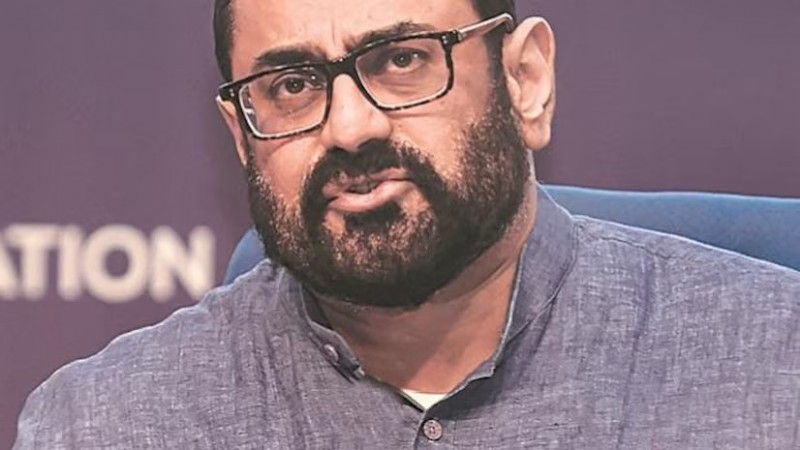
New Delhi: In a bold statement, Rajeev Chandrasekhar, a prominent figure in the technology and business world, has vehemently rejected claims that artificial intelligence (AI) will result in widespread job losses. Chandrasekhar, known for his expertise in the field, described such assertions as baseless nonsense and highlighted the positive potential of AI in shaping the future of work.
Addressing a gathering of industry leaders, policymakers, and technology enthusiasts, Chandrasekhar emphasized that AI should not be seen as a threat but rather as a transformative force that can enhance human capabilities and create new opportunities. He emphasized that historically, technological advancements have led to the creation of more jobs than they have displaced.
Also read:The Impact of Nature Sounds on Relaxation and Sleep Quality
"The fear-mongering about AI taking away jobs is nothing more than bakwas," Chandrasekhar stated, using the Hindi term for nonsense. "AI has the potential to revolutionize industries, improve efficiency, and enable humans to focus on higher-value tasks. It will augment our abilities and open up new avenues for innovation and growth."
Chandrasekhar highlighted several key points to counter the job loss narrative. He emphasized that while AI may automate certain repetitive and mundane tasks, it also enables the development of new industries, products, and services that were previously unimaginable. This, in turn, generates fresh employment opportunities and promotes economic growth.
Furthermore, Chandrasekhar pointed out that AI requires human intervention at various stages, including designing, developing, and maintaining the technology. The expertise and skills of human workers are essential in ensuring the effectiveness and ethical use of AI systems. As a result, the demand for workers with AI-related skills is expected to increase significantly in the coming years.
Also read:AI-Powered Robots Assert Potential to Efficiently Govern the World
To support his claims, Chandrasekhar cited numerous real-world examples where AI has complemented human labor and created new job prospects. He highlighted sectors such as healthcare, finance, logistics, and manufacturing, where AI-powered solutions have improved efficiency, accuracy, and customer experiences while simultaneously creating employment opportunities.
Acknowledging the need for reskilling and upskilling the workforce, Chandrasekhar emphasized the importance of investing in education and training programs that equip individuals with the skills necessary to thrive in the AI-driven economy. He advocated for a proactive approach from governments, educational institutions, and businesses to ensure a smooth transition and minimize any potential disruptions.
While acknowledging the need for caution in certain areas where AI may have ethical implications or impact certain job roles, Chandrasekhar stressed that it is essential to focus on the transformative potential and possibilities that AI presents. He urged policymakers and stakeholders to foster an environment that encourages innovation, collaboration, and responsible AI development.
Also read:Indian Army Drills Crossing Indus River in Eastern Ladakh to Attack Enemy
As the world continues to embrace technological advancements, Chandrasekhar's strong stance against the narrative of AI job losses sends a powerful message. It serves as a reminder that with proper planning, investment, and a forward-looking mindset, AI has the potential to revolutionize industries, enhance productivity, and create a future where humans and machines work together synergistically.
As the conversation around AI and its impact on the workforce evolves, it is crucial to approach the topic with nuance and consider the multitude of factors at play. By doing so, society can fully embrace the benefits of AI while addressing any challenges or concerns that may arise, ultimately leading to a future that is both technologically advanced and socially inclusive.